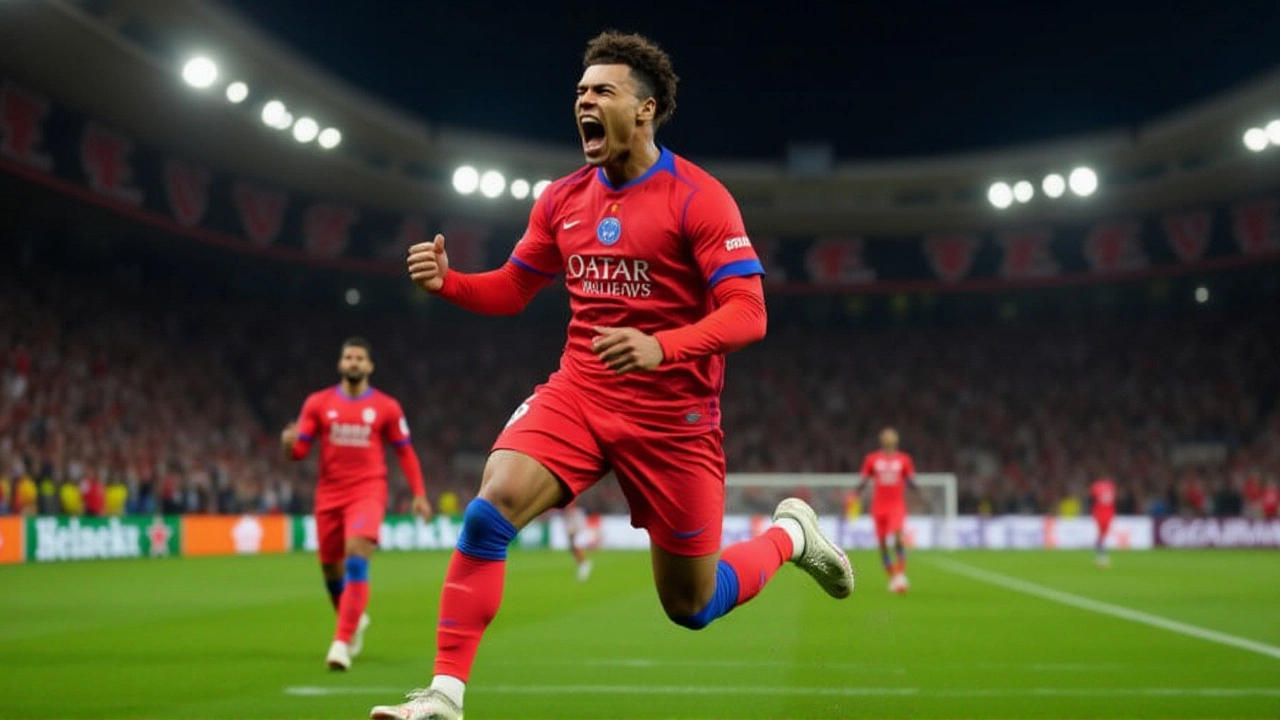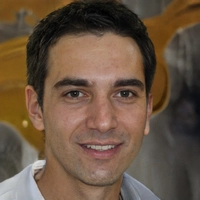When Paris Saint-Germain exploded for seven goals against Bayer 04 Leverkusen at the BayArena on , the match instantly became a textbook case of first‑half mayhem. Within the opening 45 minutes the scoreboard flashed five goals, two red cards and a pair of penalty kicks – a combination rarely seen even in the most heated UEFA Champions League group‑stage encounters. William Pacho opened the scoring in the seventh minute, while a sudden dismissal of Illia Zabarnyi at 43' left Leverkusen a man short. Even Ousmane Dembélé, the fresh Ballon d’Or winner, could not escape the chaos, ending the half with his side already ten men down.
Why this match mattered before kickoff
Group C of the 2025‑2026 Champions League featured two heavyweights: a Paris side backed by Qatar Sports Investments and a German outfit owned by the pharmaceutical giant Bayer AG. Both clubs entered the night with a perfect record – PSG sat atop the table with six points, while Leverkusen had also won their opening two fixtures. The BayArena, located at Ulrich‑Haberland‑Stadion 30, 51379 Leverkusen, was packed with roughly 30,210 fans, all expecting a tactical duel rather than a goal‑fest.
Chronology of the first half – a rollercoaster in 45 minutes
- 07′ – William Pacho rose above the defense to head home the opener.
- 12′ – Leverkusen earned a penalty; Marco Reus (not a primary entity) slotted it level.
- 18′ – PSG responded from the spot, Desire Doué (primary) coolly converting.
- 30′ – The first dismissal: Illia Zabarnyi received a straight red for a reckless challenge.
- 40′ – Desire Doué doubled his tally, firing home the fourth goal.
- 45+2′ – In added time, Doué completed his brace, making it 4‑1.
The half ended 4‑1, with both teams reduced to ten men after a second, still‑unidentified red card against PSG.
Second‑half fireworks – PSG seal the win
Instead of easing off, the French side added three more strikes. Khvicha Kvaratskhelia curled a half‑volley past the keeper, while Aleix Garcia capped the night with a late tap‑in. Leverkusen managed a consolation goal through Patrik Schick, but the damage was already done. The final whistle read 7‑2, cementing PSG’s third straight victory and a flawless nine‑point tally.
Player reactions – from euphoria to frustration
In the post‑match interview with Amazon Prime’s studio, Ousmane Dembélé smiled, “It feels good,” before adding that the red card could have been avoided with better discipline. Desire Doué – the night’s surprise star – praised his teammates for quick transitions, while Leverkusen’s captain, Charles Aránguiz, lamented the early dismissal as “the turning point we never saw coming.”
Financial backdrop – why PSG can afford such firepower
Since 2011, Paris Saint-Germain has been owned by Qatar Sports Investments, with Nasser Al‑Khelaifi at the helm as chairman. The club’s current market value hovers around €1.2 billion, allowing it to recruit world‑class talent such as the newly‑crowned Ballon d’Or winner Dembélé. By contrast, Bayer AG’s ownership of Leverkusen emphasizes stability over extravagance, a model that has produced solid domestic performances but struggles to match PSG’s spending spree on the continental stage.
What this result means for Group C
PSG now leads Group C with nine points, securing top‑seed status for the knockout round. Leverkusen, with a grim zero points after three matches, faces an uphill battle to stay alive; they must win both remaining games and hope for a slip‑up from rivals Chelsea and Newcastle United. The psychological shock of a double‑red half may also linger, potentially influencing player availability for the next league fixture.
Looking ahead – next challenges for both clubs
PSG’s next test comes against Manchester City on 5 November, a clash that will likely decide the group winner. Leverkusen, meanwhile, travel to Stamford Bridge for a must‑win, hoping to keep their Champions League hopes alive. The coaching staff of both sides will be scrutinizing the discipline issues that surfaced – especially the unnamed PSG red card – as they fine‑tune their squads for the grueling spring schedule.
Frequently Asked Questions
How did the red cards affect the final score?
Both teams finished the first half with ten men, but PSG’s attacking depth allowed them to score six of their seven goals after the dismissals, while Leverkusen could only add one, showing the French side’s ability to dominate even when shorthanded.
Which player was the surprise hero of the match?
Desire Doué, a 20‑year‑old Ivorian winger, netted a brace, including the crucial fourth goal before halftime, cementing his status as the night’s breakout star.
What does this result mean for Leverkusen’s Champions League campaign?
With zero points after three games, Leverkusen must win their remaining fixtures and rely on rivals dropping points to stay in contention; the psychological impact of a heavy defeat may also affect player morale.
How does PSG’s financial backing influence its on‑field performance?
Backed by Qatar Sports Investments, PSG enjoys a €1.2 billion squad valuation, enabling them to attract global super‑stars like Ballon d’Or winner Dembélé, which directly translates into the firepower shown in matches such as this.
When is PSG’s next Champions League match and who are they facing?
PSG’s next group‑stage fixture is scheduled for 5 November 2025 against Manchester City at Parc des Princes, a crucial encounter that could determine the group winner.

